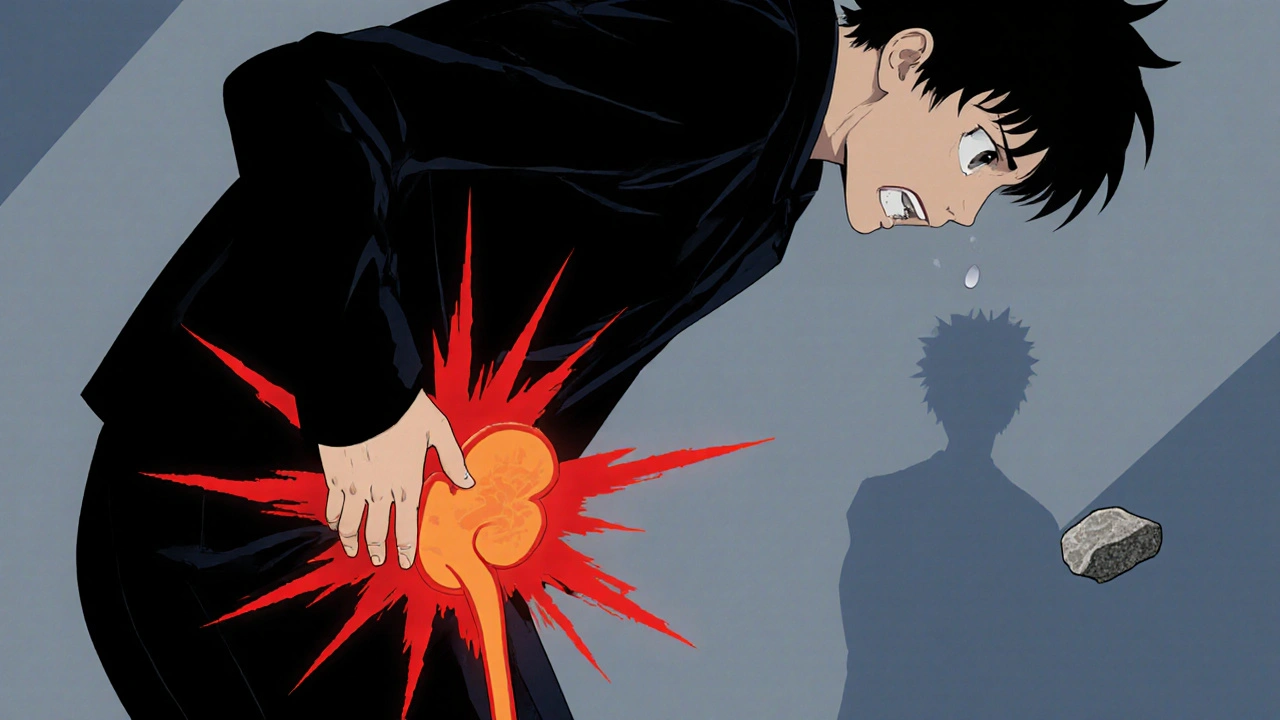Kidney Stones: Causes, Treatments, and What Works Best
When your body forms kidney stones, hard deposits made of minerals and salts that form inside the kidneys. Also known as renal calculi, they can move into the urinary tract and cause intense pain, nausea, or even block urine flow. These aren’t rare—about 1 in 10 people will get one in their lifetime. What’s surprising is how often they’re linked to simple daily habits like not drinking enough water, eating too much salt, or skipping meals.
Not all kidney stones are the same. The most common type is calcium oxalate stones, formed when calcium and oxalate build up in the urine. Others include uric acid stones, often tied to high meat intake or gout, and struvite stones, usually caused by urinary infections. Then there’s cystine stones, rare but stubborn, linked to a genetic condition. Knowing which type you have changes how you treat and prevent them.
Drinking water is the #1 thing you can do to stop stones from forming—or help pass small ones. Most doctors recommend at least 2.5 liters a day. If you’ve had one before, you’re at high risk of getting another. That’s why diet matters: cutting back on salt, red meat, and sugary drinks helps. Some foods like spinach, nuts, and beets are high in oxalate, but you don’t need to cut them out completely—just balance them with calcium-rich foods. Calcium from food actually binds oxalate in the gut and keeps it from reaching the kidneys. Supplements, though? Those can make things worse.
Small stones often pass on their own with pain relief and fluids. Larger ones may need shock wave therapy, ureteroscopy, or even surgery. But here’s the thing: many people jump to medication or supplements without first fixing the basics. A study from the New England Journal of Medicine showed that people who changed their diet and drank more water cut their stone recurrence rate by nearly half. No pills needed.
What you’ll find below are real, practical guides that cut through the noise. You’ll see how different treatments compare, what foods help or hurt, and which supplements actually have evidence behind them—not just marketing. Whether you’re dealing with pain right now, trying to avoid another episode, or just curious how to protect your kidneys, these posts give you clear, no-fluff answers.

Why Early Detection and Prompt Treatment Matter for Kidney Stones
Early detection of kidney stones reduces pain, costs, and complications. Learn symptoms, diagnostics, treatment options and prevention tips to stay stone‑free.
